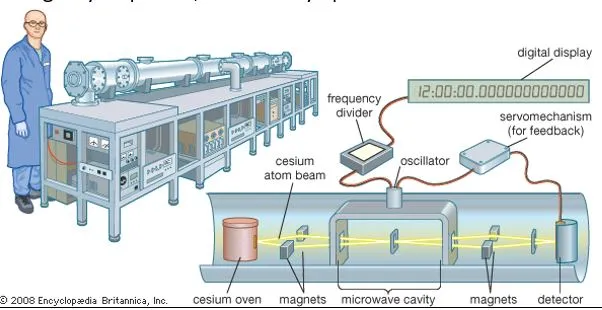

12th June 2024 (12 Topics)
Context
A recent study introduced a portable optical atomic clock suitable for onboard ships. This innovation, utilizing molecular iodine as a frequency standard, represents a significant advancement in optical timekeeping. Miniaturization of components like the spectrometer, laser system, and frequency comb enables compact designs suitable for various applications.
Key-highlights:
- Testing: Initial tests demonstrated the stability and accuracy of these portable optical atomic clocks.
- The clocks exhibited resilience to environmental factors like temperature fluctuations and humidity changes.
- Features:
- Optical atomic clocks operate at optical frequencies, leveraging lasers to stimulate atomic transitions.
- The coherent light emitted by lasers ensures precise and stable measurements.
- Strontium (Sr) and ytterbium ions are commonly used in optical atomic clocks due to their narrow linewidths and stable optical transitions.
- Accuracy: While not as accurate as laboratory-based optical atomic clocks, these portable variants offer sufficient precision for real-world applications.
- Quality: accuracy, portability, and robustness
- Application: poised to revolutionize various industries, from maritime navigation to space exploration
Fact Box: About Atomic clock
|



